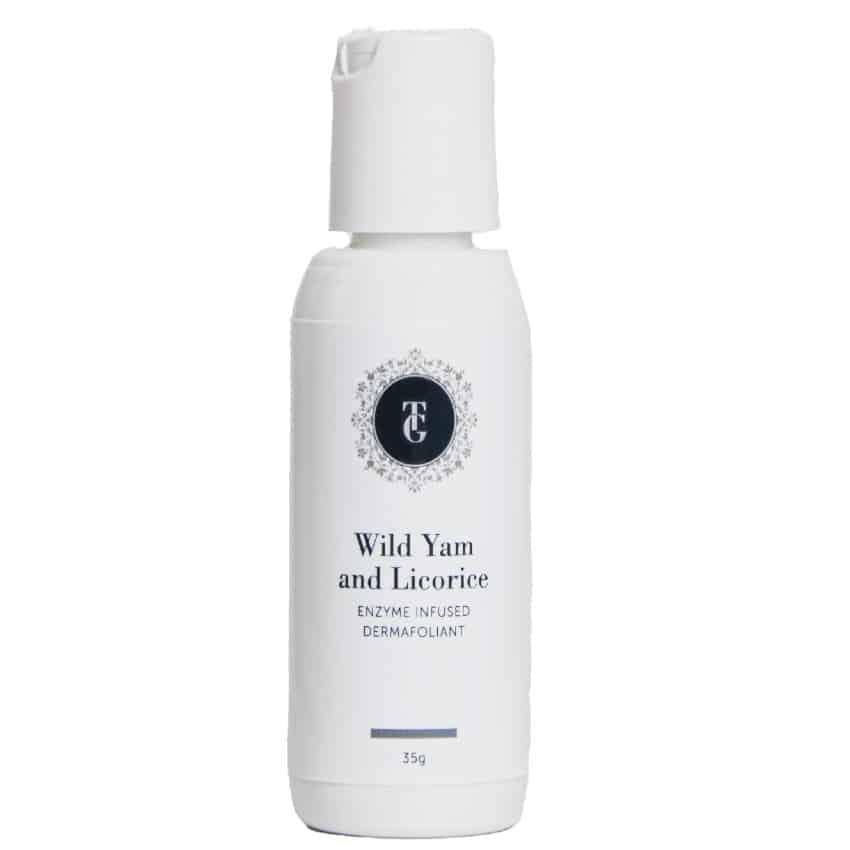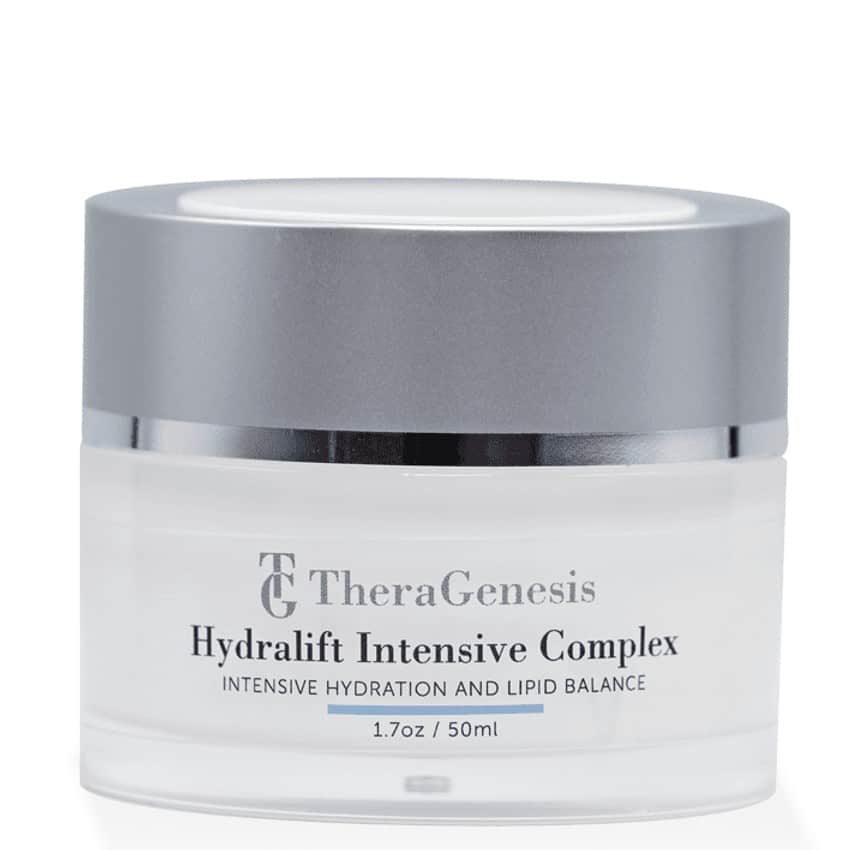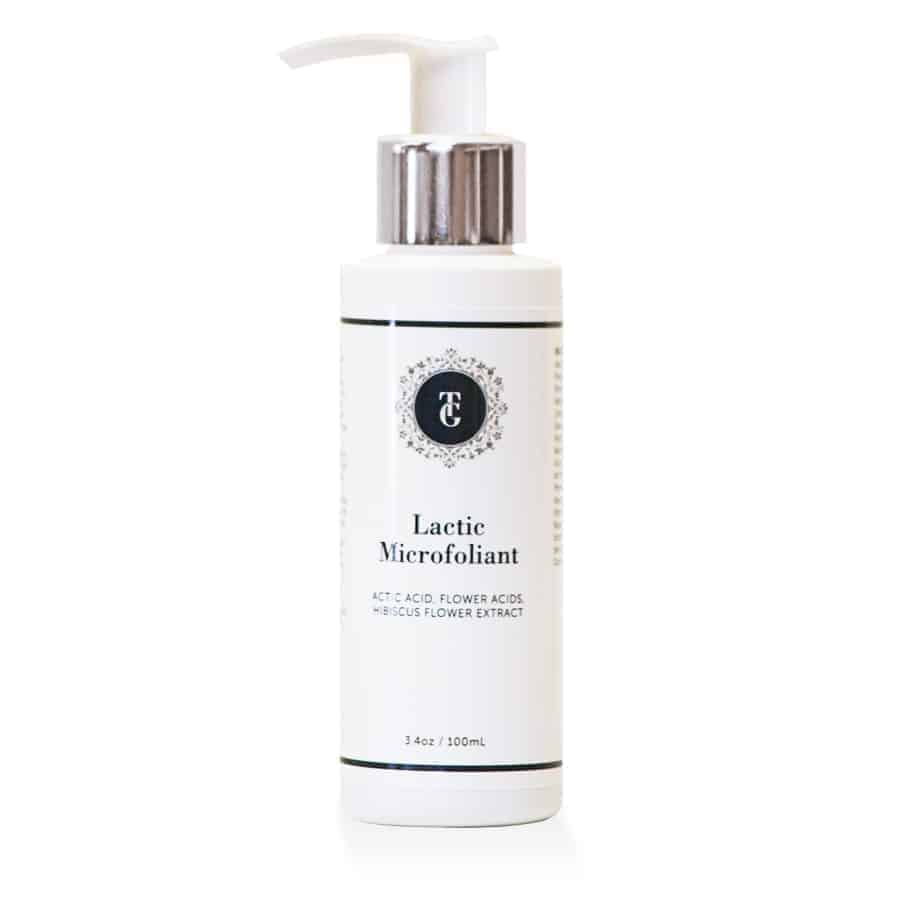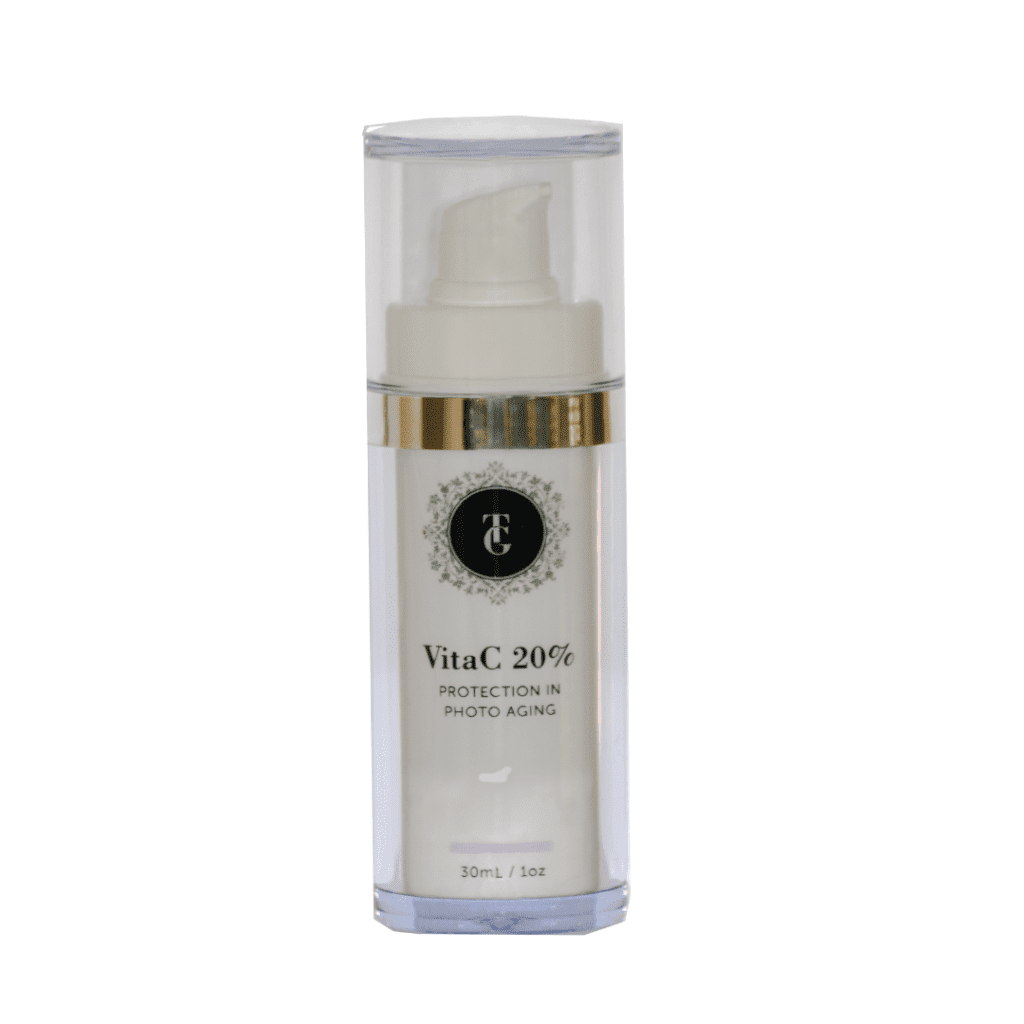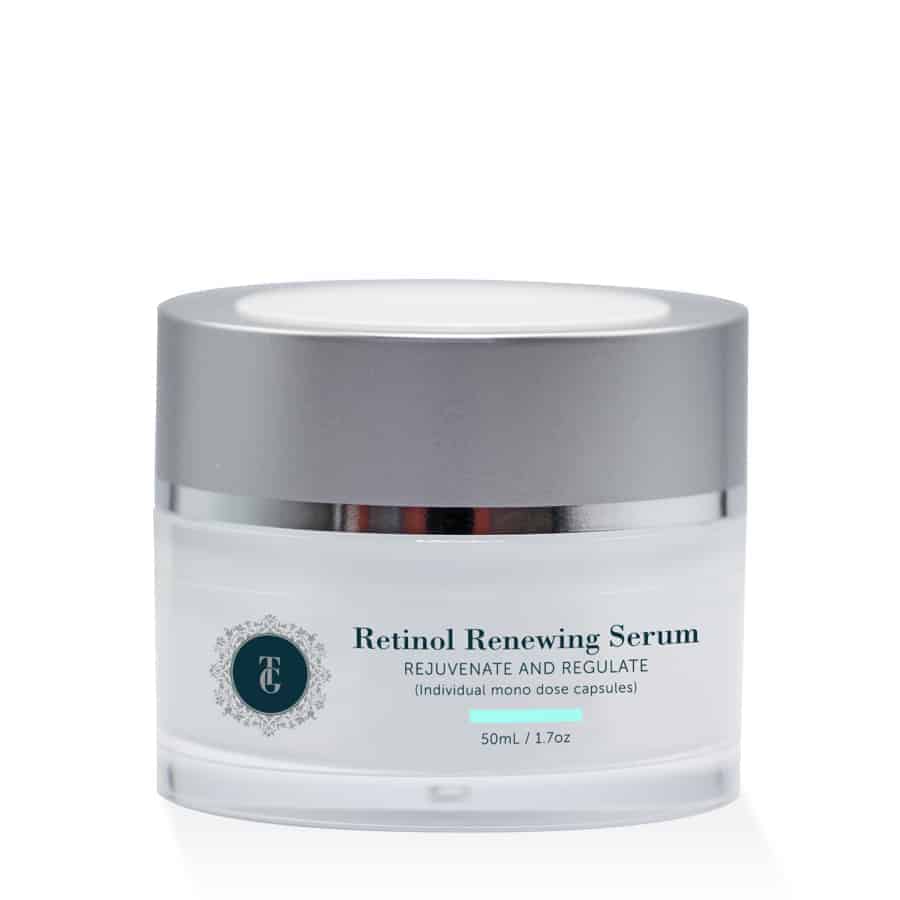Advanced Skin Care For The Management of Aging Skin

There are some skincare ingredients that must be used in combination with others to work well, and others powerful enough to benefit the skin on their own. Adding products containing the effective ingredients Retinol and Vitamin C to your client’s daily skin care routine provides maximum benefit because they work well as standalone products while also working well with others. Used separately, these two ingredients can target specific skin conditions, but when used together, retinol and vitamin C
Create the ultimate skin-beautifying duo for any skin type
There are powerful benefits of using this powerful skincare combination. However, we do need to understand why and how these two ingredients work so well individually
- Retinol as a sole treatment is extremely effective for stimulating collagen production, treating acne, tightening the skin, softening skin texture, and balancing skin pigment.
- Vitamin C products can single-handedly brighten tired skin, improve skin health by shielding the skin from pollutants and sun damage, treat hyperpigmentation, and reduce skin inflammation and redness.
Using Retinol and Vitamin C in your Client’s Skin Care Routine
Retinol is a form of vitamin A which aids the body in cellular turnover. Retinol products prompt the body to shed dead, dull skin cells and replace them with new, strong, radiant cells.
Dead skin cells occur naturally, but environmental stressors like pollution, dirt, U.V. rays, and debris can cause cell buildup and make skin dry and discolored. Additionally, air pollutants are linked to a number of skin conditions like eczema, skin aging, dermatitis, acne, and psoriasis
Retinol is only ever used at night
However, did you know that Vitamin C has powerful benefits
when also applied at night.
Recent studies have shown that U.V damage continues for hours after exposure and it has been suggested that this would be significantly reduced if Vitamin C was also used at night time.
Vitamin C is also an essential part of the collagen synthesis process. That is a crucial factor because collagen is the component of the skin that keeps it looking firm and youthful (along with elastin). As we age, the body naturally begins to slow down its production of this essential protein.
Combined with the fact that there is also a degradation of the existing collagen, especially in the face, this is the cause of a significant amount of the age-related complaints most people experience. This also verifies that Vitamin C used at night has multiple advantages being used at night.
Vitamin C products are common components of anti-aging skincare routines because they lighten hyperpigmentation, revive tired skin, reduce dark spots, and fill fine lines and wrinkles
How do Retinol and Vitamin C Work Together
There’s a common misconception that retinol and vitamin C don’t work well together due to their contrasting pH levels. Your skin requires a low pH level (0 to about 3.5) to absorb vitamin C, but to absorb retinol, the pH level must be higher (around 5.5 to 6). When you mix vitamin C and retinol, the pH of vitamin C increases and the pH of retinol decreases, which is why some believed that the two ingredients render each other ineffective
Fortunately, recent research shows that these two powerful ingredients can be combined. Together, they pack a powerful punch, reversing both natural aging and photoaging. Additionally, vitamin C stabilizes retinol, increasing its effectiveness.

Benefits of this Perfect Power Couple
- Retinol stimulates collagen production, the protein responsible for giving our skin its firmness and suppleness.
- Vitamin C provides the glue that holds cells together when collagen is produced.
- In combination, retinol and vitamin C produce youthful skin with minimal fine lines, wrinkles, dark spots, and blemishes.
- Additionally, combining vitamin C and retinol in your skin care routine improves the skin barrier, protecting the skin from the harmful environmental factors that cause skin damage and premature skin aging.
- Brightens the skin and evens the skin tone.
- Reduces the appearance of acne and acne scars
Create the ultimate skin-beautifying duo for any skin type
Start off slowly
Integrate new ingredients progressively, and have your client carefully observe how her skin reacts to each new addition. Follow up with your client after three or four days.
The active ingredient in retinol is retinoic acid, while the active ingredient in vitamin C is L-ascorbic acid. Active ingredients are ingredients which penetrate the skin, healing it on a cellular level. While active ingredients are excellent for your skin, they can also leave it irritated or inflamed if you overload your routine with them.
Retinol and vitamin C are highly effective treatments, but they can be rather intense for those with sensitive skin. Integrating them into a skincare routine too quickly may cause the skin to become dry, flaky, red, or inflamed. To avoid this reaction, ensure that your choice of Retinol has an encapsulated delivery into the skin.
Depending on skin type and tolerance, I suggest that you introduce the use of Retinol three nights a week. Remember Retinol is only ever used at night. Mandatory Sunscreen Retinol products can thin the skin barrier and increase its sensitivity to the sun’s UV rays, so it’s important to wear sunscreen when using them. Although vitamin C’s antioxidant properties support a healthy skin barrier, which protects the skin from UV rays, you should still add a layer of sunscreen for increased protection from sun damage.
Be Aware of Other Harsh Ingredients

Many people already use products containing beta hydroxy acids (BHAs) or alpha hydroxy acids (AHAs) in their daily skincare routine. AHAs (such as lactic acid and glycolic acid) and BHAs (like salicylic acid) act as natural skin exfoliants.
Be aware of other products your client is using and please educate your clients on the use of other harsh ingredients to avoid unnecessary sensitivity such as BHAs and AHA’s. These ingredients also may increase the skin’s sensitivity and using all of them together can irritate the skin.
Mature skin does not respond well
to an over aggressive approach to skin care.
When using retinol or vitamin C and also have BHA’s or AHA’s try to use them at separate times and not in the same application. For example: If using Retinol three or four evening a week combined with a 20%Vitamin C, use the AHA’s in the three nights that follow as of course they are also powerful exfoliators not to be used in the mornings. Personally, I do prefer to recommend a gentler approach and use either the Wild Yam and licorice multifoliant or if preferred the Lactic Microfoliant three days after ceasing the Retinol applications.
Hydrate
Retinol can have a considerable drying effect on the skin, especially when you first integrate it into your skincare routine. As your skin tries to adjust to this powerful ingredient, you may notice an increase in dry, flaky skin cells. Additionally, as retinol purges your skin of old skin cells to make way for new skin cells, these old skin cells start to flake away at the surface. Regardless of the skin type (dry skin, oily skin, sensitive skin, or combination skin) anyone can experience this dehydrated side effect.
Vitamin C however has proven to be a natural moisturizer that reduces water loss from our skin, but additional moisture is still necessary to keep your skin hydrated, particularly when first adding these ingredients to your routine.
One way to increase skin hydration is to add hyaluronic acid to your daily skincare routine. Our ward winning TheraGenesis Hydralift Serum is an encapsulated delivery of Hyaluronic acid and is highly effective moisturizing serum.
Ways to Combine Retinol and Vitamin C
Using Vitamin C in the morning and Retinol at night
Vitamin C visibly brightens your skin, so many people prefer to apply vitamin C in the morning—after all, who doesn’t want to start the day off with visibly brighter skin? Vitamin C also creates a protective barrier that defends the skin from the sun’s intense UV rays and the unpleasant photoaging effects they cause. Applying the TheraGenesis DailyVitaC Serum in the morning followed by a sunscreen with an SPF of at least 30 will preserve your skin’s youth and improve the appearance of dark spots.
Dermatologists recommend you use retinol at night since it increases the skin’s sensitivity, making it more susceptible to damage or irritation from heat and the sun’s UV rays. At night, apply TheraGenesis Retinol Renewing Serum that will tighten the skin and mitigate wrinkles, fine lines, and other imperfections while you sleep.
Alternate between Retinol and Vitamin C each night
Do you already love your morning skincare routine? Add vitamin C and retinol at night.
To reap the benefits of retinol and vitamin C without irritating or inflaming your skin, try using retinol one night and vitamin C the next. Over time, you’ll start to firm skin from this nightly routine.
Now combine Vitamin C and Retinol at night
Once your skin has adjusted and you are ready for the power packed results of using both at night, try this. This is recommended for mature skin that needs the benefits of this power couple.
- Apply VitaC 20% as it requires a lower pH to be absorbed.
- Wait 10 to 15 minutes
- Apply Retinol Renewing Serum.
- Then add TheraGenesis Hydralift Intensive Cream for continued lift and firm peptide delivery and also encapsulated Hyaluronic acid for complete hydration.
Be Patient
It takes time to see results from new skincare products. Many people grow impatient when trying out a new product and give up before seeing the benefits. However, dermatologists estimate that it can take up to 3 months for your skin to experience the full benefits of ingredients that alter cell behavior, like retinol and vitamin C. Commit to trying new products for at least 3 months before changing your skincare regimen to experience real benefit.
Products Mentioned in this Article

Written By Trish Green DiHom(Pract) B.Ed Cidesco Diplomat. Bach Flower Therapist.
Trish is a graduate of the Victoria University of Manchester, Trish is a teacher with 35 years of experience in the education field. For twenty of those years she has been an educator in the esthetics industry. She is an advocate for raising standards in education for Complementary Health Care Practitioners with special interest in Aromatherapy. Her career in the field of natural health and esthetics is wide and varied. From Doctor of Homeopathy to Cidesco diplomat, Trish is a dedicated professional, committed to ongoing education and the education of others.

